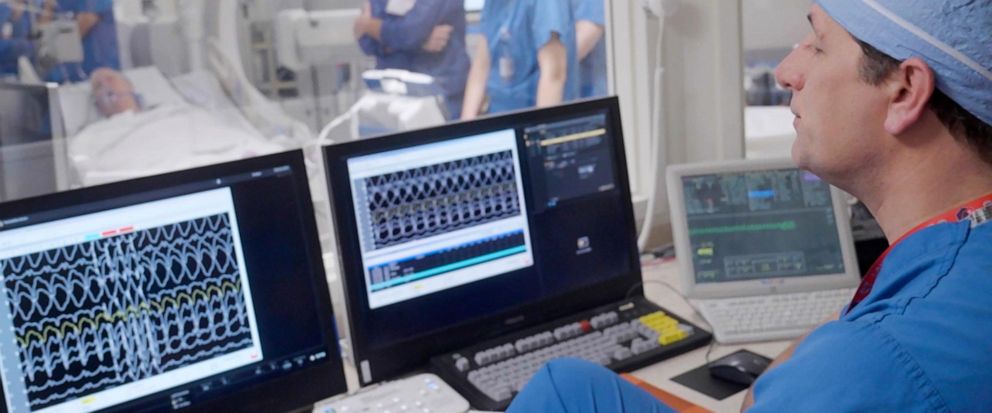ST. LOUIS — Doctors are zapping the heart with radiation normally reserved for cancer, a bid to better treat people with life-threatening irregular heartbeats who’ve exhausted other options.
While it’s highly experimental, surprising early research suggests it may reprogram misfiring heart cells to control heartbeats more like younger, healthier cells do.
“It may actually rejuvenate sick tissue, and that’s pretty exciting,” said Dr. Stacey Rentschler of Washington University in St. Louis.
An irregular heartbeat called ventricular tachycardia is a major cause of sudden cardiac arrest, blamed for about 300,000 U.S. deaths a year. Treating it with radiation is a radical approach — cancer doctors are trained to avoid radiating the heart at all costs for fear of collateral damage.
Now researchers are about to begin the first rigorous study to prove if a quick, one-time dose to fight this irregular heartbeat really works well enough — and is safe enough — for more patients like Jeff Backus, who relapsed after standard care.
The Louisville man already had undergone an hours-long invasive procedure to keep his heart beating properly, and had a defibrillator implanted as a back-up. Then this winter, twice in about a month, Backus briefly passed out and awoke feeling like he’d been kicked in the chest. The defibrillator had had to save him, shocking his heart back into rhythm.
“You’re always in the back of your mind thinking, ‘Is it going to happen?’” Backus said. Out of other options to prevent another scary episode, he chose the experimental radiation in February — and so far is doing well. “It gave me some hope.”
The heart’s electrical system normally makes it beat with a steady lub-DUB, anywhere from 60 to 100 times a minute. Ventricular tachycardia is a super-fast heartbeat, unable to properly pump blood. It happens when those electrical signals short-circuit in the bottom chambers, the ventricles, often because of damage from a prior heart attack.
The main treatment: Doctors thread catheters inside the heart to identify and burn the misfiring tissue, creating scars that block bad signals. Some patients are too sick for this “catheter ablation” and for others, like Backus, the problem eventually returns.
Dr. Phillip Cuculich, a heart rhythm specialist at Washington University, came up with the idea for a no-incision alternative.
It takes a lot of up-front testing. Patients get a souped-up EKG, donning a vest covered in about 250…
Click Here to Read the Full Original Article at ABC News: Health…

